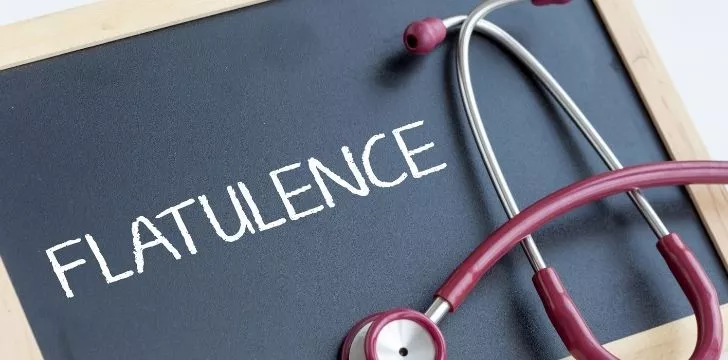Farting: worlds best research study ever
In this article, we will describe the worlds best research study (ever) on farting.

In a 1991 paper, ‘Investigation of normal flatus production in healthy volunteers’ by Tomlin, researchers (from Royal Hallamshire Hospital in Sheffield), carried out a medical investigation into farting.
Flatulence can cause discomfort and distress but there are few published data of normal patterns and volumes.
These were the key points of the paper.
- Twenty four hour collections were made using a rectal catheter in 10 normal volunteers taking their normal diet plus 200 g baked beans.
- Total daily volume ranged from 476 to 1491 ml (median 705 ml). And the volume of the average fart – regardless of gender, body size, or time of day – was 33-125 ml, with a median of 90 ml.
- Women and men (both n = 5) expelled equivalent amounts.
- The median daily flatus hydrogen volume was 361 ml/24 h (range 42-1060) and the carbon dioxide volume 68 ml/24 h (range 25-116). Three volunteers produced methane (3, 26, and 120 ml/24 h), and the remaining unidentified gas (presumably nitrogen) or gases contributed a median 213 ml/24 h (range 61-476).
- Larger volumes of flatus were produced after meals than at other times.
- Flatus was produced during the sleeping period, but the rate was significantly lower than the daytime rate (median 16 and 34 ml/h respectively).
- Ingestion of a ‘fibre free’ diet (Fortisip) for 48 hours significantly reduced the total volume collected in 24 hours (median 214 ml/24 h), reduced the carbon dioxide volume (median 6 ml/24 h), and practically eradicated hydrogen production. The volume of unidentified gas was not significantly affected (median 207 ml/24 h). Thus fermentation gases make the highest contribution to normal flatus volume. A ‘fibre free’ diet eliminates these without changing residual gas release of around 200 ml/24 h.
Summary
We have described the worlds best research study (ever) on farting. Thankyou Dr Tomlin and colleagues from Sheffield for carrying it out. We hope this has been helpful.

